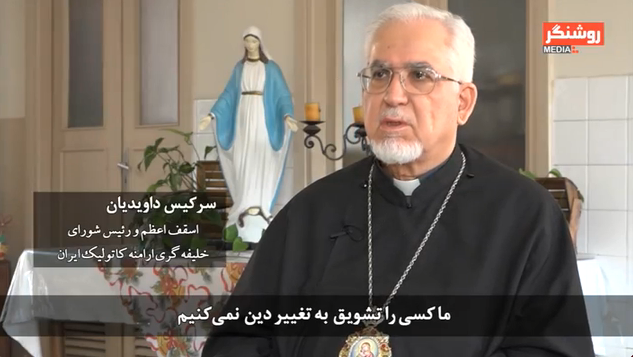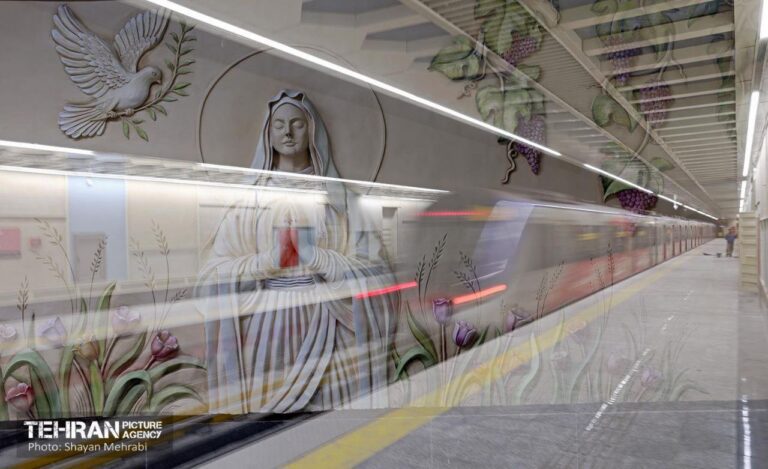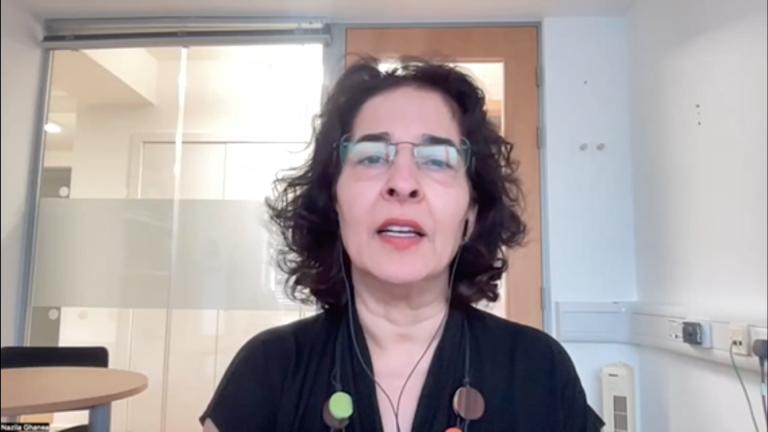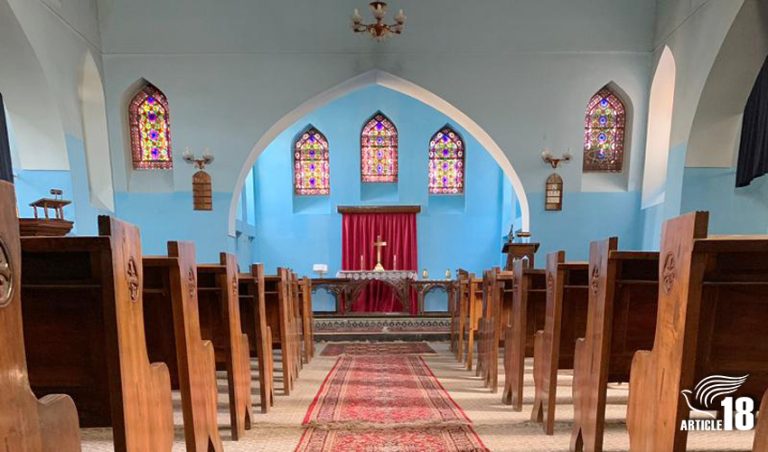
The Iranian state propaganda machine continues to use the country’s recognised Christian minority groups – of Armenian and Assyrian descent – as tools to speak out against the rise of evangelical Christianity in Iran.
The latest example is a video published yesterday by Roshangar Media – which introduces itself as a “centre for the study of religions and sects” – in which senior Armenian and Assyrian representatives distance themselves from Iran’s burgeoning house-church movement, denounced by the regime as “enemy groups” of a “Zionist cult”.
“We do not encourage people to change their religion,” says Iranian-Armenian Catholic archbishop Sarkis Davidian in the video. “People must remain in their religion.”
“We do not accept when someone forgets his religion and goes somewhere else,” he adds.
“It isn’t our role to evangelise or preach Christianity,” says another interviewee, Iranian-Armenian former archbishop Nechan Karakéhéyan.
Another, Iranian-Assyrian parliamentary representative Sharli Envieh, even goes so far as to label evangelical churches “repugnant to us”, before championing the “self-sufficiency”, justice” and “human dignity” of the Islamic Republic.
The video is also used to specifically target and rebut articles on the Iranian Christian website, Mohabat News – especially those that have highlighted the hypocrisy or false claims of these representatives in the past.
Using the words “fake news” in the introduction, and an eerie musical accompaniment throughout, the self-proclaimed “documentary” includes screen grabs of various Mohabat News articles, highlighting particularly sections where the reporting has differed from state-sponsored reports.
Article18 has reported previously on the ways in which the Iranian regime has used its recognised Christian minority groups to speak out against their own.
In “Iran’s religious minority representatives: surrender to survive“, published in August 2020, Iranian-Armenian journalist Fred Petrossian noted that despite the harassment of minorities being “institutionalised in the very fabric of the Islamic Republic … representatives of religious minorities find themselves almost forced to defend the interests and discourse of a government that has deprived them of many of their rights, in an attempt perhaps to regain those lost rights or to prevent their further deterioration”.
Meanwhile, Article18’s advocacy director, Mansour Borji, noted that among the people who welcomed the Islamic Republic’s founding father, Ayatollah Ali Khomenei, when he first arrived at the airport “were leaders of the historic Armenian and Chaldean churches, who in so doing ensured their protection under the new Islamic state.”
Even these recognised minority groups are treated as second-class citizens, Petrossian noted. However, “the persecution of unrecognised minorities such as Baha’is and Christian converts is so severe that there is less talk about violations of the rights of the minorities ‘recognised’ in the Constitution”.
Article18 has also previously highlighted how Iran’s propaganda machine has sought to spread misinformation about other recognised Christians, such as Iranian-Assyrian pastor Victor Bet-Tamraz, who fled the country last year after his appeal against a 10-year prison sentence for running a house-church was finally rejected.
In October 2019, state-sponsored Press TV claimed Victor’s case was “not news” and that he “hadn’t even seen the inside of a prison”.
In truth, as his daughter Dabrina told Article18: “He saw it for a very long time. He was for 65 days kept in solitary confinement in different cells and finally moved to a ‘suite’, they call it, where there are 10-20 prisoners in one room in a very unhealthy condition.”
Article18 is currently working on a report researching the myriad ways in which hate speech and misinformation are used against Christians and other religious-minority groups in Iran to foment hatred and inspire attacks – whether by impassioned individuals or the state’s security forces.
Some saw hardliner Ebrahim Raisi’s de facto appointment as president that the regime had stopped caring about outside opinion, but such propaganda shows that the Islamic Republic is still fighting a battle for hearts and minds – both inside and outside the country.



0 Comments
Trackbacks/Pingbacks